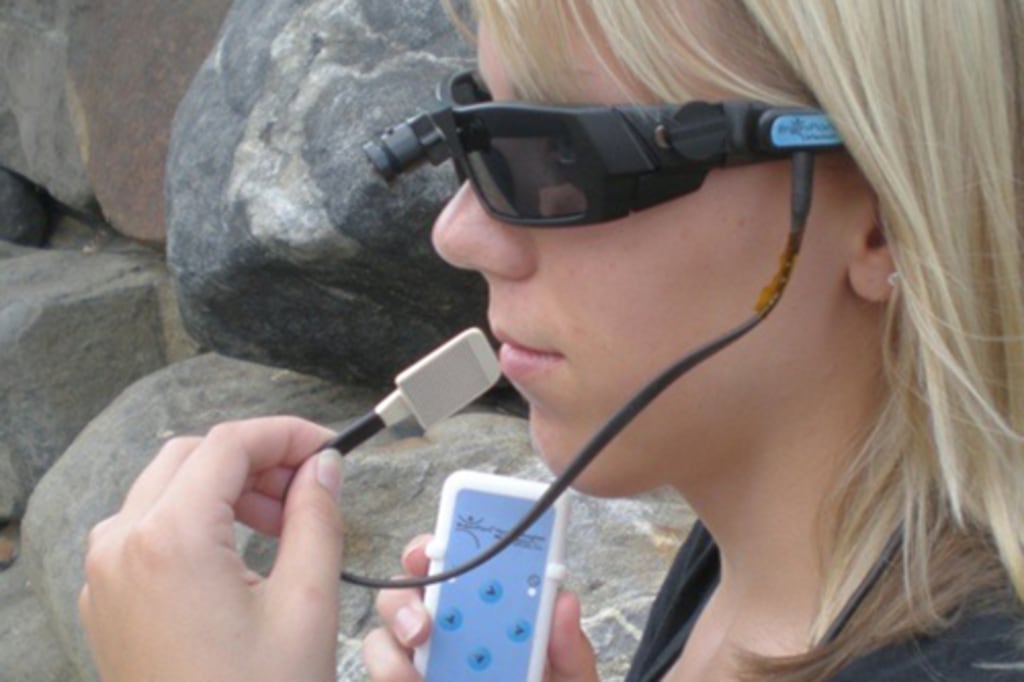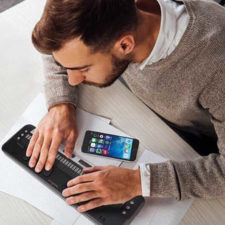Screen Readers for the Blind: Essential Tools for Digital Access
Screen Readers for the Blind: Essential Tools for Digital Access
Blog Article
Empowering Self-reliance With Assistive Technology for the Blind
The assimilation of assistive innovation right into the lives of people with aesthetic disabilities stands for a substantial improvement in promoting freedom and self-sufficiency. From innovative display viewers to innovative clever walking sticks, these tools not just boost daily navigating and communication but likewise encourage users to involve meaningfully in various facets of life. As we discover the myriad benefits and real-world applications of these technologies, it ends up being critical to analyze the underlying aspects that add to their performance and the capacity for future developments in this essential area.
Overview of Assistive Technology

The advancement of assistive innovation is based in concepts of inclusivity and empowerment. Developments in software program, equipment, and sensory improvements give individuals with choices customized to their specific needs. From screen readers that transform text to speech, to responsive tools that share info via touch, these devices transform the way people involve with their environments.
In enhancement to practical applications, assistive innovation cultivates greater social addition and engagement in various industries, including education and learning and employment (Braille displays and notetakers). As r & d proceed to advance, the possibility for assistive innovation to further improve the lives of aesthetically impaired people continues to be promising, leading the way for a more fair culture where everyone can thrive
Types of Assistive Instruments
A variety of assistive gadgets have emerged to support people with visual disabilities, each made to fulfill certain demands and improve everyday performance. These tools range from low-tech remedies to modern developments, supplying varied options for users.
Low-tech devices consist of magnifiers and large-print products that help in analysis and writing. Braille tools, such as Braille slates and styluses, enable tactile reading and communication. Positioning and wheelchair help, like white walking sticks, aid customers browse their environment securely.
On the higher end of the spectrum, electronic magnifying systems and display visitors provide significant support. Digital magnifiers allow customers to enlarge text and pictures on displays, while display visitors transform electronic content right into synthesized speech, helping with access to information on computers and smart devices.
Smartphone applications likewise play a crucial duty, offering functions like message recognition and navigation support. Wearable modern technology, such as wise glasses outfitted with increased truth, is emerging as an encouraging tool to improve situational recognition.
Benefits of Assistive Technology
The assimilation of assistive modern technology considerably improves the quality of life for individuals with visual disabilities. These technologies empower individuals by advertising freedom, allowing them to navigate their atmospheres better and carry out day-to-day tasks with higher convenience. Display viewers and zoom software program permit people to gain access to digital information, cultivating specialist and academic opportunities that might have formerly been out of reach.
In addition, assistive tools such as wise canes and GPS applications supply real-time navigating assistance, improving wheelchair and safety. This raised freedom not only enhances self-confidence but additionally urges social engagement, allowing individuals to participate more fully in their communities.
Assistive innovation additionally facilitates communication, assisting individuals get in touch with others through voice recognition and text-to-speech applications. This capacity is vital for preserving partnerships and accessing vital info.
Furthermore, the customization choices offered with lots of assistive innovations make sure that individuals can tailor devices to their certain demands, better improving functionality and efficiency. Overall, the benefits of assistive innovation for people with visual disabilities are extensive, advertising a more inclusive society where everybody can pursue their goals and ambitions.
Study and Success Stories
Highlighting the transformative effect of assistive modern technology, countless study highlight how individuals with visual problems have efficiently integrated these tools right into their lives. One engaging example entails a college pupil who utilized screen reading software application to navigate scholastic materials and on the internet sources successfully. useful site This modern technology not just promoted her education and learning however additionally improved her self-confidence in taking part in conversations and team projects.
One more case research includes a professional who employs a smart device application designed for navigating and object acknowledgment. By utilizing this app, he has actually regained freedom in both his individual and workplace, allowing him to commute independently and engage with colleagues much more successfully.
In addition, a retiree shared her experience with braille e-readers, which allowed her to access a large range of literary works and remain connected with her community through publication clubs.
These success stories emphasize the crucial function of assistive innovation in promoting freedom, improving high quality of life, and advertising social integration for people with aesthetic impairments (Speech-to-text devices for low vision). By accepting these ingenious devices, users can overcome obstacles and seize possibilities that contribute to their personal and expert fulfillment

Future Trends in Assistive Technology
Technology in assistive modern technology is positioned to redefine the landscape of assistance for individuals with visual problems. Arising fads stress the integration of expert system (AI) and machine learning, which improve the performance of tools that help with navigation and details ease of access. As an example, AI-driven applications are now with the ability of analyzing visual information in real-time, allowing individuals to engage with their setting more individually.
Furthermore, the advancement of wearable innovation is progressing rapidly. Smart glasses furnished with augmented truth (AR) can give audio summaries of surroundings, transforming how users engage with public areas. These tools not only advertise freedom however likewise foster social inclusion.
Furthermore, the Internet of Points (IoT) is making homes smarter, enabling smooth connectivity between daily home appliances and assistive tools. This connectivity empowers individuals by making it possible for computerized feedbacks and voice-activated controls customized to private needs.
Final Thought
To conclude, assistive modern technology plays an essential duty in encouraging individuals with visual disabilities by improving their independence and involvement with their environments. The varied variety of applications and tools readily available not just facilitates navigating and interaction however Read More Here additionally advertises social assimilation and chances for personal and professional growth. As innovations continue in this area, the possibility for enhancing the top quality of life for those with aesthetic impairments will certainly expand, cultivating better autonomy and empowerment.

Report this page